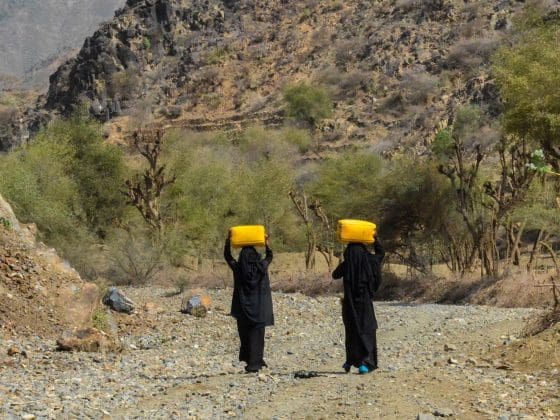
Two Yemeni women carry water in jerry cans propped atop their heads (Eman al-Awami/CARE)
WASH systems approaches are increasingly seen as a vital means for the sector to achieve the SDG targets. However, much of the thinking and documentation around WASH systems approaches have focussed on more stable – albeit low income – developmental contexts. By 2030, 80% of the world’s poorest people will reside in ‘fragile’ states, and many of such states are off track to meet the WASH SDGs. Failing to find means to substantially increase (and sustain) WASH access in fragile contexts, may mean failing to meet the SDGs.
This discussion paper considers how WASH systems concepts and approaches can be applicable to fragile contexts, and what adaptations may be needed to make such approaches relevant and viable. It looks at challenges and opportunities to apply systems approaches, and provides suggestions and practical ideas on aspects of the system to strengthen. It also provides case study examples and reflections from a number of INGOs and also UNHCR.
A major theme of the paper is around integrating the aspect of resilience into the objectives of WASH systems strengthening. It also emphasises the opportunities to have greater connectedness between humanitarian and development action.
